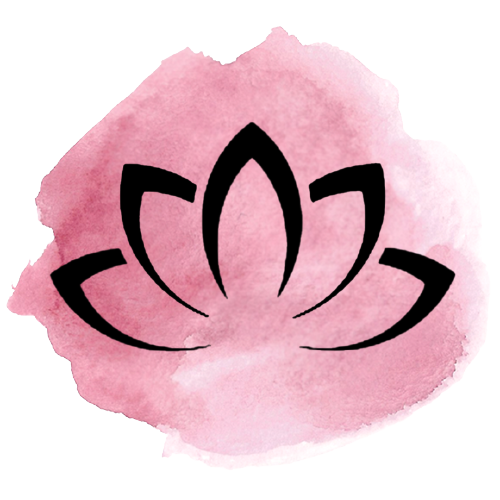Spooks, Ghosts and Goblins . . . Asian Style
Halloween is upon us once again and it is time for millions of families – including mine – to enjoy spooky stories about witches, imps, goblins, and things that go bump in the night. In the West, such tales are seen as just a bit of harmless fun. But in Asia, with a rich spiritual history that goes back thousands of years, people took the supernatural much more seriously.
I was born and brought up during the 1960s in Shanghai. Under the rule of the Chinese Communist Party, religion and superstition were banned. My generation was taught not to believe in the existence of supernatural phenomena, let alone spooks and ghosts. As a child, I remembered that in his revolutionary quotations, Mao Zedong often accused those he believed were against the revolution of being “cow-headed demons and spirits with a snake’s body.” His words used to scare me. But they also puzzled me because I didn’t understand how people could have the head of a cow or the body of a snake. It was not until the Cultural Revolution was over and I became a grown woman that I learned that the beliefs in “cow ghosts and snake spirits” were derived from Taoism and Buddhism – important parts of our ancient culture – and referred to the dark, evil spirits roaming in the afterlife of the underworld. They warned people not to behave badly and end up in the scary world of Hell for all eternity.
My father’s mother was a faithful Buddhist her entire life and very much believed in ghosts and spirits. On certain days of the year, she would cook up a banquet, not to feed her hungry family still here on Earth but her long-gone ancestors. She believed it was her duty to provide them with food so they wouldn’t become hungry ghosts wandering forever in search of food. Such practices were common in old China.
One particularly haunting story she told me when I was little changed my life. She revealed to me that my father’s life was ruined even before he was born and told me about a strange old beggar who came to her door every day for seven days just before her first child – my father – was born. Coming from a prosperous, well-off family, she pitied the beggar, prepared him food, and fed him. The beggar disappeared after my grandmother gave birth and never came back. She realized only later that the beggar was what the Chinese called a youhuen, a wandering spirit in search of a host for its next life, and that the youhuen had jumped into my unborn father, changing his fate and the fates of everyone around him forever. As if on cue, the family’s fortunes did indeed change drastically – sometimes for rational reasons, sometimes for ones that seemed murky and mysterious. The family’s factory was bombed during the second World War, destroying their prosperity and plunging them into poverty. Whatever was left was confiscated after the 1949 communist revolution. Misfortune after misfortune seemed to follow. Jobs disappeared. Illness took those we loved. Any small hints of good fortune mysteriously evaporated. And my mother just could not stop having girls – the ultimate sign of bad luck in old China.
When I was growing up during the Cultural Revolution, every time something bad happened to my father, my grandmother told me that it was the beggar’s doing. It was my father’s “beggar’s fate.” Since I was taught in school not to believe in ghosts and spirits, I didn’t fully believe it, but as time went by, I became less sure. When I saw my good, honest father jailed twice because of the Cultural Revolution – once for being against it and then for being for it – I began to wonder what larger forces were at work. While millions in China experienced hardship and bad luck during these years, my father’s fortune always seemed worse. By the time I was born, we were living in a wooden shack in a Shanghai shantytown with no heat, water or food. In a final twist of chance, the fates of my father and my grandmother, which were bound to each other along with the mysterious beggar’s, came together one last time in the hours before they both died together on the same day.
As real ghosts increasingly became part of my own life with the deaths of my grandparents and then my parents, I mourned my family and remembered their lives and many misfortunes. My grandmother’s story about the beggar came back to me as if it contained some dark truth. My modern, scientific mind laughs and shoos away the notions that spooky and supernatural forces can guide our lives. But sometimes, late at night, thinking about all the strange beliefs of an ancient culture thousands of years old, and of all that has happened, I am not so sure after all.
Once Our Lives is the true story of four generations of Chinese women and how their lives were threatened by powerful and cruel ancient traditions, historic upheavals, and a man whose fate - cursed by an ancient superstition - dramatically altered their destinies. The book takes the reader on an exotic journey filled with luxurious banquets, lost jewels, babies sold in opium dens, kidnappings by pirates, and a desperate flight from death in the desert - seen through the eyes of a man for whom the truth would spell disaster and a lonely, beautiful girl with three identities. Buy it today on Amazon!
Qin Sun Stubis
Qin Sun Stubis is a writer, newspaper columnist and author of “Once Our Lives,” the award-winning historical memoir about four generations of Chinese who struggled to survive war, revolution and the seemingly unshakeable effects of an ancient Chinese superstition.



